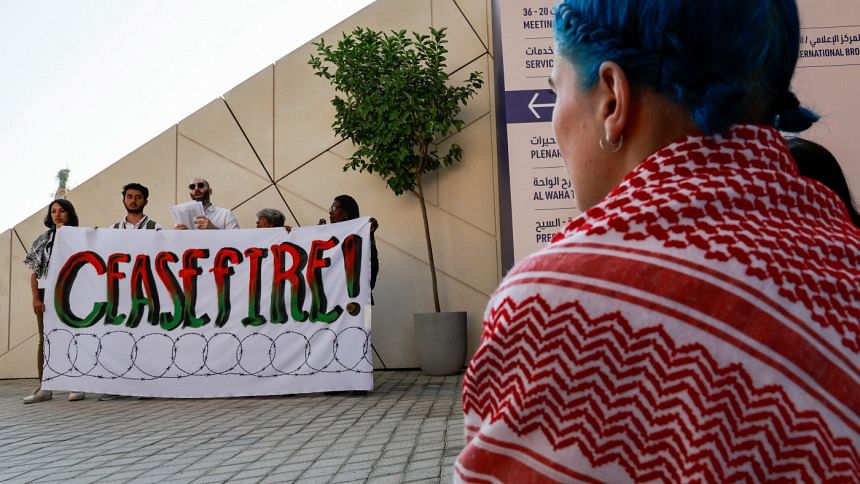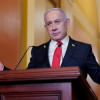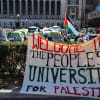To be treated as equals to the West, the Global South must decolonise its minds

What does the "decline" of the West mean? After Ukraine and Gaza, the line between the West and the Rest (what is today called the Global South) has been drawn up clearer than ever. In Ukraine, the West expected the Rest to support its principled stance in fighting for national sovereignty, freedom to choose, and against aggression from neighbours. The West was surprised that the Rest did not fall in line, with many abstaining from taking sides. In abandoning diplomacy and balance in favour of weaponising everything, the collective West (the US, Europe, Japan, and Australasia) is increasingly isolating itself from the Rest, divided into the East (strangely grouped as Russia, China, Iran, and North Korea) and the Global South (comprising those countries which refuse to be aligned either with the East or the West).
Today's modernity is clearly associated with the West, which has set the scientific, educational, and cultural standards since the 15th century, when Portuguese and Spanish explorers opened up the Americas, Africa, and the Asian maritime trade routes. Colonisation became a land and power grab by Europeans against the Rest, with the use of superior military firepower, energy, and industrial and financial technology.
When the US took over the global hegemon mantle from the British empire after the end of the Second World War, many former colonies were brought into the neoliberal ideology that free trade and markets, democracy, rule of law, and equality would be a universal creed for all nations and cultures. That naive belief ended when inequality within the West itself widened, even as the gap with the Rest narrowed. Neoliberal idealism shattered as the West's middle class began to turn toward protectionism, industrial policy and in the case of Israel, military occupation and subjugation of Palestinian rights.
The Palestinian-American father of post-colonial studies, Edward Said, said: "Part of the main plan of imperialism…is that we will give you your history, we will write it for you, we will re-order the past…What's more truly frightening is the defacement, the mutilation, and ultimately the eradication of history in order to create…an order that is favourable to the United States."
The colonisation of the mind, which is the ultimate aim of imperialism, is achieved when the colonised, slave, or vassal believes that the imperial power is superior to his or her own culture. Mental slavery is more frightening than physical slavery.
Decolonisation means different things to different peoples, depending on their own colonial or near-colonial history. In former colonies like India and South Africa, the British "Raj" mentality is being replaced by home-grown narratives in which the countries seek "strategic autonomy" for foreign affairs, and greater sovereignty (some call it nationalism) in owning data and developing control or regulation over generative AI. But no one has total sovereignty if a handful of platforms can use AI to obtain full data about how individuals and entire nations are thinking or behaving.
We are in an uncharted mental territory. The self-order of free markets is being replaced by an unpredictable non-order, arising from competition by new state-market bureaucracies that are neither fully elected nor humanely designed. The new order may even be machine- or AI-generated. Where is justice in AI-generated algorithms being able to order the execution by missile strike or drone of someone branded a terrorist outside legal jurisdiction? Who will enforce natural justice when the system systematically dehumanises humanity by treating individuals as digits to be manipulated, controlled, or deleted?
In an over-crowded planet, the system is inherently unstable when we attempt to resolve differences via conflict and war. As history has shown, war begets more war.
If there is a fundamental difference between the West and the Rest, it is that the theory-biased, principles-based West often forgets history and context, opting for fundamental "principles" of inalienable rights to guide its action. Russian historians remember that it was the Western Europeans (Napoleonic France and Nazi Germany) who invaded Russia twice in the last two centuries. The Israeli expansion of territory in Palestine over time is also there for all to see.
The paradox of the UN's Sustainable Development Goals is that the Global South must find its own paths and intellectual paradigms in a diverse search for sustainable living. Decolonisation of the mind requires the courage to reject the unsustainable, but also to find new pathways that are more holistic and democratically legitimate than the old.
In short, decolonisation is a journey waiting to unfold. The Spanish poet Antonio Machado, in his famous poem "Caminante, no hay camino" ("Traveller, there is no road"), made the point that the road is made by walking on it. In a post-Western world, the Global South must walk its own paths in search of a more peaceful and sustainable future.
Andrew Sheng is a distinguished fellow of Asia Global Institute at University of Hong Kong, and chief adviser to the China Banking Regulatory Commission.
Views expressed in this article are the author's own.
Follow The Daily Star Opinion on Facebook for the latest opinions, commentaries and analyses by experts and professionals. To contribute your article or letter to The Daily Star Opinion, see our guidelines for submission.

 For all latest news, follow The Daily Star's Google News channel.
For all latest news, follow The Daily Star's Google News channel. 










Comments